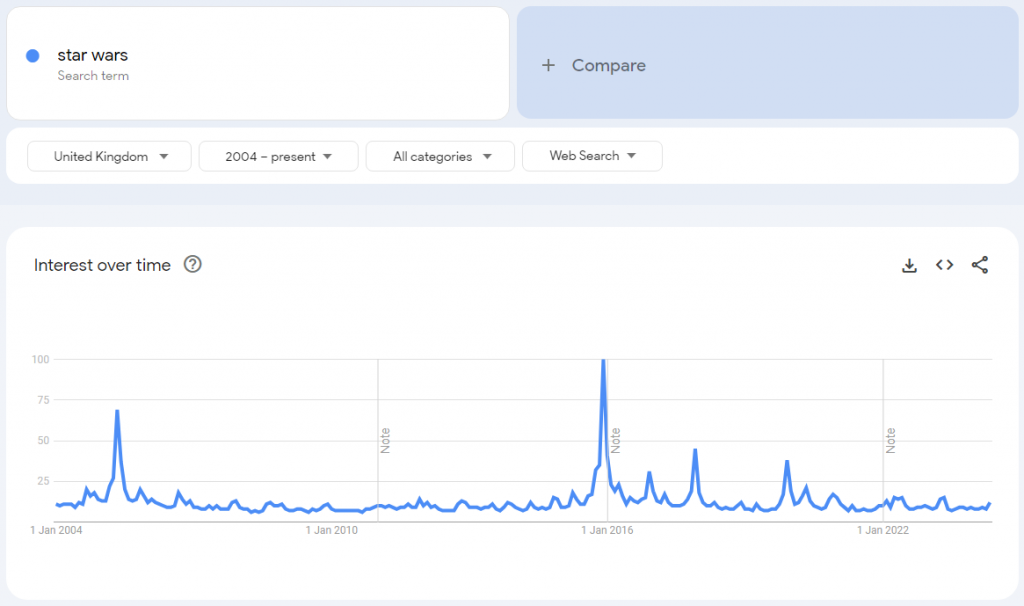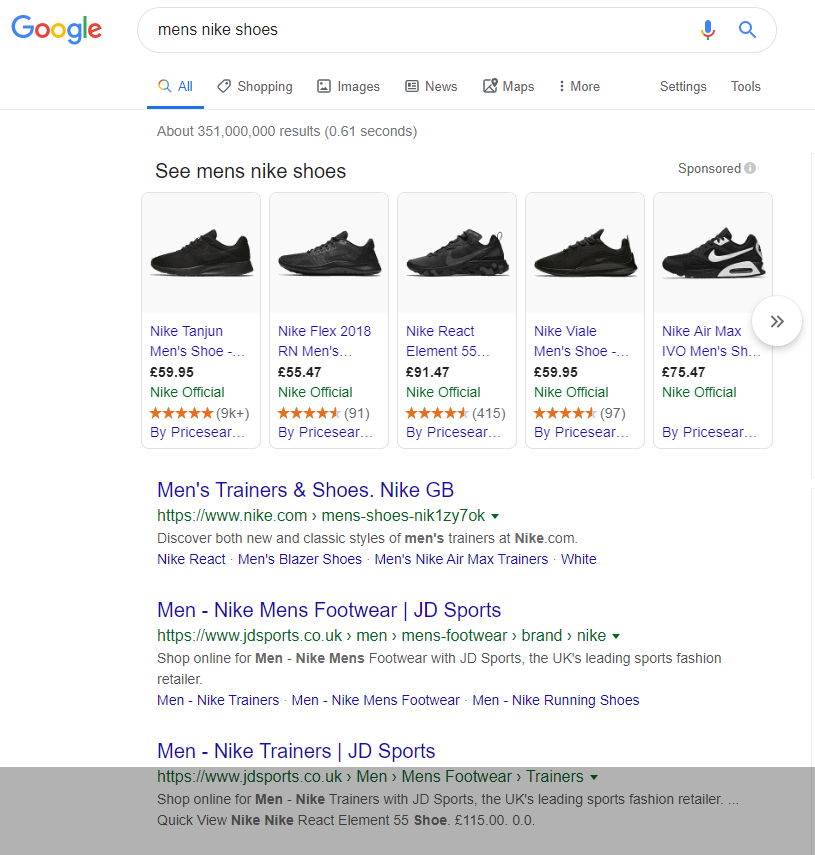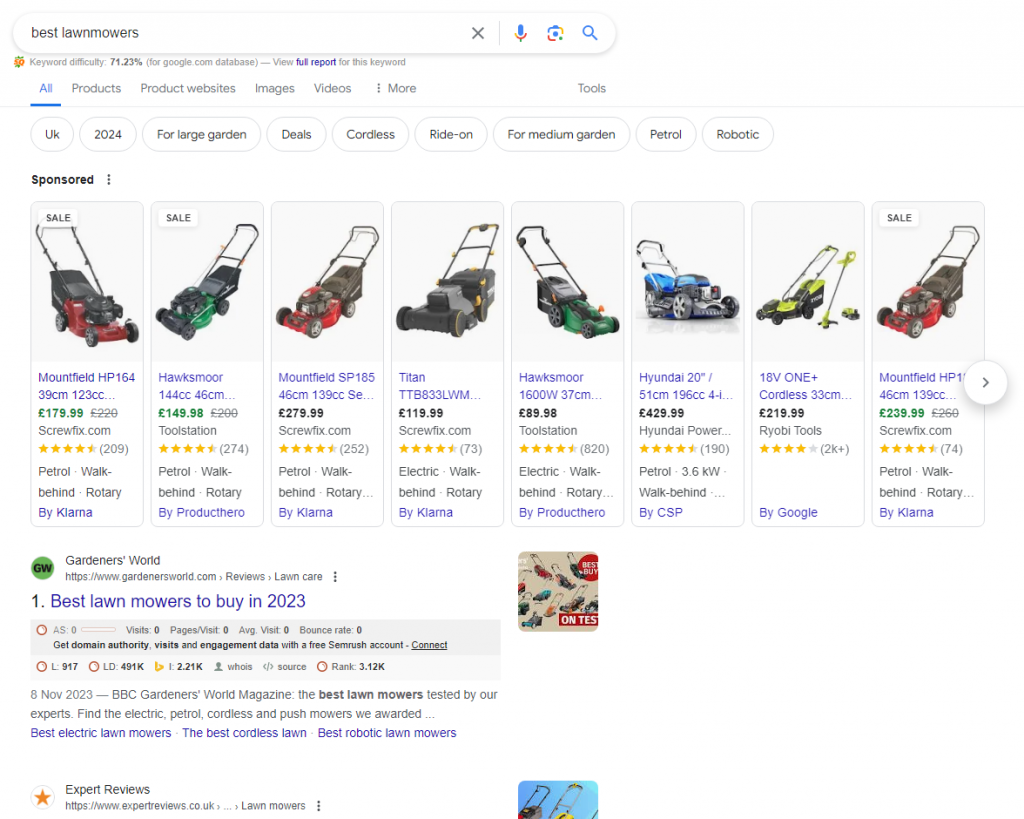Targeting and tracking the right keywords brings your site the most relevant traffic possible.
On the surface, choosing keywords for SEO might seem simple. If your website sells shoes, surely it should be as easy as optimising your website around the keyword “shoes”?
Not quite. The single word “shoes” is searched 90,500 times per month on average, and results pages are dominated by big-name retailers such as Office, Schuh and Asos.
It is extremely difficult to compete for the top spot on these general search terms, but keyword research can help find more effective queries to target.
To choose keywords that will be effective for your business, you must do keyword research (or use a keyword research service). During this research, SEO experts consider:
- Search volume
- Relevance to your business
- Competition
- User Search Intent
- Keyword types, such as Long-Tail keywords
Here’s our starting guide for choosing SEO keywords that are best for your website.
What are SEO keywords?
Keywords (sometimes known as search terms or key phrases) are words and phrases that users enter into a search engine to return a set of results.
SEOs use keywords to define web pages and help target content to the largest and most relevant audience possible.
By understanding the keywords that people use to find products and services like yours, you can optimise your website to capture as much relevant search traffic as possible.
Find the right keywords through keyword research.
Search Volume
Search volume is the total number of searches for a given keyword.
For example: according to the latest data, the keyword “star wars” gets an average of 110,000 searches a month in the UK. But how many of those 110,000 are looking for Star Wars toys, merchandise, streaming or just general information about the movies? Judging by the peaks that coincide with release dates in 2005, 2016, 2017 and 2019, it’s information about the movies.
While it is important to target keywords with the highest search volume possible, balance search volume with relevance to your brand and offering.
Keyword Relevance
Relevant traffic will come from users who are looking for the exact information or product your website is providing. They are more likely to buy from you than those who looking for something else.
Although a keyword may have high search volume and low competition, it’s not worth targeting unless it matches the content your website is offering. Otherwise, it won’t bring in useful traffic.
High search volumes often appear for terms with ambiguous intent. Understanding more specific search terms helps you understand the phrases ideal customers are using to find products like yours.
For example: imagine you have an eCommerce site that sells running shoes designed for gym and exercise use.
Tracking and targeting the keyword “shoes” would not be worthwhile. Although it has a high search volume, this keyword is too general and may draw users whose search intent doesn’t match the specific content your page provides.
“Running shoes”, “Gym shoes”, and “shoes for the gym” are all key phrases that have a stronger association with your product.
Research specific terms that describe your product or service well.
Keyword Intent / Search Intent
Understanding why a user is making a search is vital for SEO – are they looking for a specific product? Do they just need some information on an event? Are they looking for contact details?
There are four types of searches (according to Google)
Navigational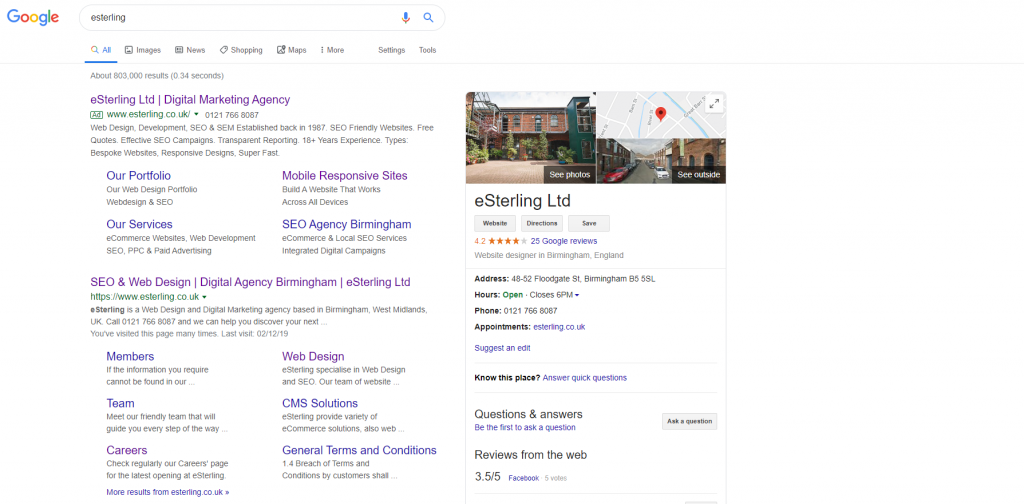
The intent is to reach a particular website or brand. Navigational searches could be terms such as “amazon” or “nike running shoes”.
Informational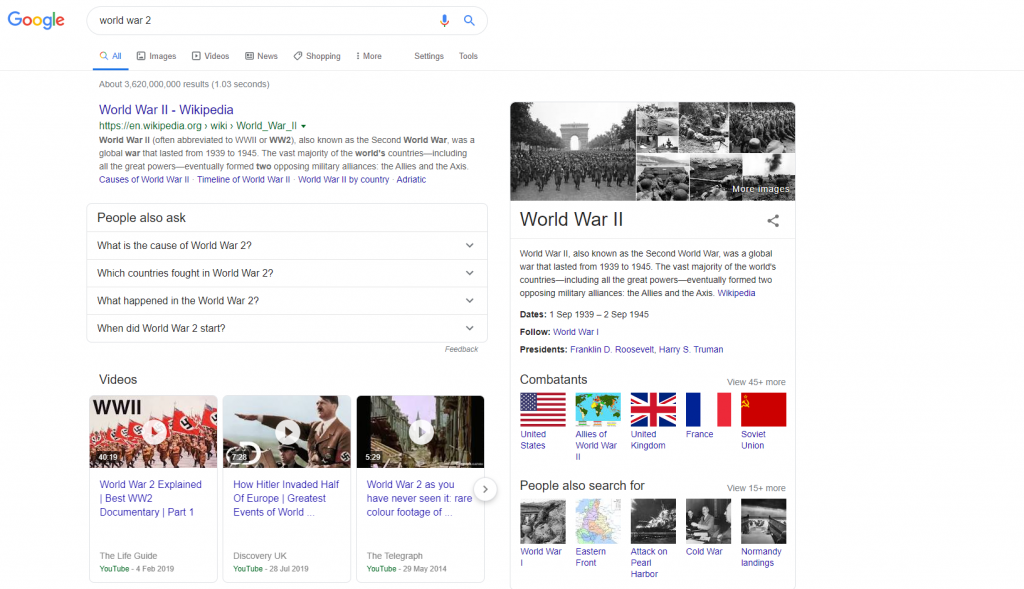
Informational searches are when users are looking for guidance, background information, or specific information about a topic or product without having any concrete intention to purchase or any wish to seek out a specific page.
Transactional
Search requests that indicate a clear intention to purchase are regarded as transactional queries.
Commercial
This is a more recent addition, and describes search terms used by those who want to compare different options before making a purchase.
Commercial search term users are higher up the customer journey funnel than those using ‘Transactional’ search terms, so these queries often return comparison articles, reviews and testimonials.
Through machine learning, Google attempts to understand the intent of searches and returns results that are the closest match to this intent. By looking at the results for a certain keyword, you can get an idea of what a user’s intentions are when they use it.
This is important when choosing keywords. Commercial and Transactional search terms are worth targeting and tracking to increase business.
Keyword Competition
It’s important to consider which competitors are appearing for your chosen keywords. If the first page of Google is dominated by Amazon, eBay or equally as large companies, it may be difficult to outrank these sites.
This isn’t to say it’s impossible but, especially in the early days of an SEO campaign, it may be better to focus your efforts on less competitive keywords.
Research similar-sized competitors and see what keywords generate organic traffic for them. Do you rank for these keywords?
Long-Tail Keywords
Long-tail keywords are longer, specific phrases that narrow down the pool of results.
They are less competitive than shorter keywords, and although they have lower search volume, those using them are more likely to convert to purchase than those using shorter terms.
While your main pages should target simple, high-volume terms that match your products, long-tail keywords provide quality traffic that is extremely relevant. They also help you stand out from your competitors who are only targeting generic shorter terms.
To return to our example of the eCommerce running shoes site, examples of long-tail keywords would include:
- “Running shoes for gym size 5”
- “Ladies black running shoes”
- “Good workout shoes for the gym”
- “Trainers for weightlifting and cardio”
Target long-tail keywords with subheadings on your main pages or content in your blog section.
If you are still having trouble choosing the best SEO keywords, contact eSterling.
As part of our SEO services, we use industry-leading keyword research tools to uncover exactly what you need to target to bring in the most traffic possible.
Give us a call on 0121 766 8087 to discuss how we can help your website reach more people.

